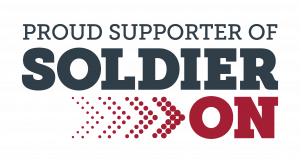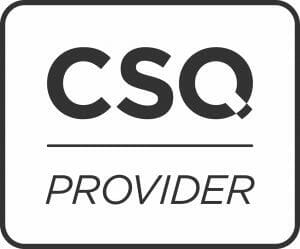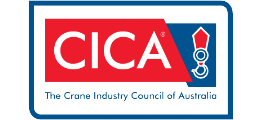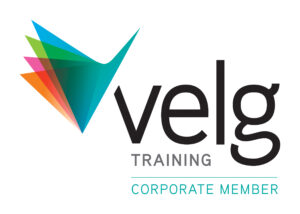About this Course
Course Description:
This Telehandler course unit describes a participant’s skills and knowledge required to conduct telescopic materials handler operations in the Resources and Infrastructure Industries.
This Telehandler Course unit is appropriate for those working in operational roles.
Training will be completed with fork tynes, however if required, training can also be completed with other attachments such as crane jibs, earthmoving buckets, grabs etc.
This course does not cover the requirements for operating a slewing telehandler or for crane jib attachments with a lifting capacity over 3 tonnes. A High Risk Work licence class C2 or above is required for slewing telehandlers, or CN or above for crane jib attachments over 3 tonne.
A TSHA Gold Card licence can be organised upon request.
Location:
Public courses run at Kallibr Training (RTO 32365) location in Brisbane QLD.
Private training can be organised and conducted onsite if the following training and assessment requirements are met:
- A room with access to power, a blank wall for presentation, a projector screen or a large TV, table/s and chairs.
- Suitable clear operating area
- Telehandler (in serviceable condition with no faults and operator manual present)
- Each type of attachment required (in serviceable condition with no faults)
Course Outline
- Available at Salisbury
- Onsite training available
- Nationally recognised
- Group discounts available
- Online booking available
Course Availability & Pricing
Please see our public course dates below. If there are no dates available or you would like to arrange a private course at your site or ours, then please select the ‘Private courses’ button.
Course Outcomes
Learning Outcome
On completion of the course, participants will have gained the following skills and knowledge in:
- Plan Operations: Hazard management and consultation
- Pre-operational Inspections: on the telehandler and each type of attachment being conducted
- Operate: shifting loads and travelling through obstacles
- Conclude Operations: Parking, securing the equipment and following site specific procedures
Outcome
A nationally recognised Statement of Attainment.
Further Information
What is a Forklift?
A Forklift (also known as an industrial lift truck) is a small power-operated vehicle used to lift, stack and move/transfer cargo over short distances. It features a “forked” platform attached at the front that can be lowered and raised in the lifting/moving process.
Forklifts are most often used in warehouses, storage facilities, industrial worksites and similar. Only trained Forklift drivers with special Forklift licences are legally allowed to operate them.
What Is a Telehandler?
A Telehandler (also known as a telescopic handler) is a machine most commonly used with attachments (such as a bucket, pallet fork or winch) to assist in moving loads places. Telehandlers are often compared to cranes; however, they are often much smaller and more portable than Cranes.
They can efficiently perform certain jobs that would otherwise require a Crane (such as placing loads at heights – like rooftops). Telehandlers can only be legally operated by trained and licensed operators.
What is the Difference Between a Forklift & Telehandler?
Both Forklifts and Telehandlers have the ability to lift and transport loads, however a Telehandler is more of a hybrid between a Crane and a Forklift. This is because a Telehandler has increased movement (e.g., a single telescopic boom can extend up and forwards from the Telehandler).
Forklifts only have forks that can lift loads up and down, but Telehandlers can also move goods backwards and forwards (without having to move their base). As mentioned above, a Telehandler can also be fitted with various attachments (including a platform), thereby making it more versatile for application of a wider range of project needs.
They are most often utilised to move loads places a conventional forklift can’t. Both Forklifts and Telehandlers require the appropriate licence to operate in Australia.
Benefits of Obtaining a RIIHAN309F – Conduct Telescopic Materials Handler Operations Qualification in NSW & QLD
Enhanced Employment Opportunities: Broaden your employment opportunities with a telehandler licence. Acquire advanced skills and appeal to a wider range of employers across more industries – construction, agricultural, and logistics companies.
Increased Earning Potential: Earn more by virtue of holding a telehandler licence. As a certified telehandler operator, you can legally operate this equipment, and access jobs that may offer increased earning potential.
Versatility in the Workplace: From forklift to crane, bulldozer, or elevated work platform – telehandlers are versatile multitaskers.
Improved Safety and Efficiency: Be more efficient and productive, and minimise the risk of
workplace accidents. A trained, licensed telehandler is across all the necessary safety protocols and operational techniques, resulting in improved workplace safety and operational efficiency.
Career Advancement: Open doors to advanced and varied career opportunities. Your telehandler licence could be your ticket to more specialised roles, like a specialist equipment operator, or a supervisor role.
Compliance with Regulations: Australian OHS / WHS regulations require telehandler operators to hold a valid telehandler licence. Following on from this, businesses that use telehandlers must also employ licensed telehandler operators to operate them.
Job Security: Gain specialist skills and increase your value to employers. A telehandler licence gives you the edge you need to future-proof your current job, or be more attractive to other potential employers.
Telehandler licencing requirements vary between states and territories. It is important to check licencing requirements with your local WHS Authorities.
A new non slewing telehandler licence is now available in Victoria. For more information, please visit WorkSafe VIC – Non-slewing-telehandler-licence




